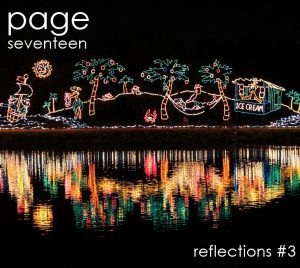 It’s now less than a month until we unleash the latest page seventeen upon the world. Don’t forget, Issue 11 is available from November 19!
It’s now less than a month until we unleash the latest page seventeen upon the world. Don’t forget, Issue 11 is available from November 19!
In the meantime, some of the Issue 11 contributors have a little more to share on what went into their latest work.
* * *
Maggie Veness on ‘Cicada’
While I’m not a big fan of science fiction I enjoy reading Vonnegut – I admire the way the ordinary and the fantastic sit together so comfortably in his stories. His posthumously published collection, Look at the Birdie, inspired me to write a story where genres overlapped.
The shorter the story the less time a writer has to develop a character, and dialogue helps enormously to reveal character. However, when we meet my young protagonist, Ali, she doesn’t have the ability to speak. While this meant I needed to work hard on the narrative, the old adage ‘actions speak louder than words’ also came to the fore.
As both reader and writer I enjoy left-of-centre endings. Although Ali’s life is harsh and dismal she doesn’t have a mean bone in her body. I wanted Ali to maintain her gentle persona but still give her story a take that ending.
The way we process ideas at a subconscious level is wonderfully odd, and this sci-fi newcomer had to come up with something more original than little green men! Fortunately, the physical form of the other-worldly characters who rescue Ali seemed to assemble independent of me.
The feedback I’ve received about Cicada is humbling and inspirational. I’m no historian, nor creative writing university graduate; I’m someone who fell in love with writing, who writes in order to explore the human condition. I hope to remain as curious and grateful as I am right now.
Comments welcome: maggies_place_@hotmail.com (please type P17 in the subject line.)
Maggie Veness’s quirky, contemporary stories often challenge categorisation. Her knack for placing cogent characters in situations rarely talked about makes for compelling reading. With countless stories now in print across seven countries, she continues to work toward a published collection of her own. She lives on the northern coast of NSW.
* * *
A E Cochrane on ‘The story of who I am’
My poem is a musing on the ultimate pointlessness of stories. We are obsessed with them, but in the end we are not our stories, they just get in the way of who we are.
I wrote this poem while walking down St Kilda Road. The first stanza is about the Shrine, the second about the Arts Centre, the third about Government House, the forth about the office blocks and the fifth is the Odyssey in the Botanic Gardens.
A E Cochrane works as a technician backstage at various theatres around Melbourne.
* * *
Eril Riley on ‘Onshore, offshore, unsure’
What propels people to escape their homeland and risk their life seeking asylum in another country? The notion perplexes as much as it does disturb. To feel the necessity to flee and leave all that is familiar, including loved ones, is difficult to comprehend and in writing Onshore, Offshore, Unsure, I aimed to travel as an asylum seeker.
To experience sufficient fear, terror and angst that one would risk one’s life and often the life of children, is almost unimaginable to those who are fortunate enough to reside here in Australia. To endure weeks, months or years of uncertainty whilst moving through various countries not knowing if the destination would ever be reached, must certainly attack the hinges of one’s sanity. The journey is fraught – physically, psychologically and emotionally. It is one that requires resilience, determination and desperation. One begins onshore, navigates offshore and is always unsure of one’s fate.
Living within a sneeze of the Dandenong Ranges offers sustenance and inspiration for writing – an innate drive for Eril Riley, who retired from cartooning to concentrate on the written word. Several awards have prompted manic keyboard pirouetting.

Only sheer terror motivates refugees